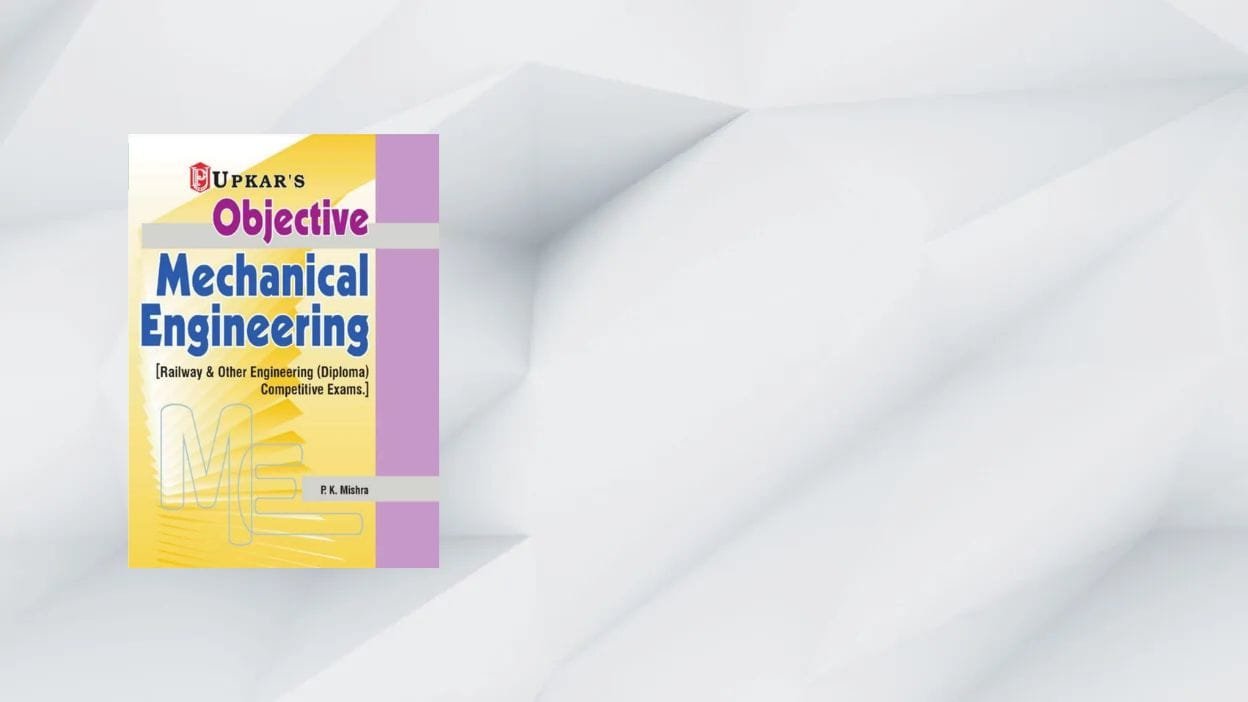Mechanical engineering remains a foundation of technological progress, and mastering its core concepts is essential for students, professionals, and competitive exam aspirants. The Objective Mechanical Engineering book series — widely used for Railway, Diploma, GATE, SSC JE, and other competitive exams — provides a perfect blend of theory, multiple-choice questions (MCQs), and practical problem-solving approaches.
This guide explores its importance, content coverage, legal ways to access free PDFs, and tips for using these resources effectively.
Why Use Objective Mechanical Engineering PDFs?
PDF formats have transformed study habits by making learning materials portable, searchable, and eco-friendly.
Key Benefits:
- Convenience – Access on laptops, tablets, or smartphones anywhere.
- Searchability – Instantly locate topics or keywords.
- Sustainability – Reduce paper use and printing costs.
Features of Objective Mechanical Engineering Books
These books are designed with exam preparation in mind, offering:
- Comprehensive Content – Covers all major topics from thermodynamics to machine design.
- Practice Questions – MCQs tailored for competitive exams like GATE, ESE, SSC JE, and Railway exams.
- Illustrations & Graphs – Visual aids for better understanding of complex principles.
Advantages of Free PDFs
For students on a budget, free Objective Mechanical Engineering PDFs can be invaluable.
- Cost Savings – Access top-quality content without purchasing multiple books.
- Wide Selection – Explore various authors and editions.
- Easy Sharing – Share study materials with classmates and peers.
Popular Authors & Publishers
Some of the most trusted names in mechanical engineering exam preparation include:
- R.S. Khurmi – Known for comprehensive explanations and large question banks.
- R.K. Jain – Offers concise, exam-focused theory and practice.
- Tata McGraw-Hill – Well-structured content for all learning levels.
Key Topics Covered in Objective Mechanical Engineering PDFs
- Thermodynamics – Heat, energy, and work principles.
- Machine Design – Material selection, force analysis, and safety factors.
- Fluid Mechanics – Fluid properties, flow behavior, and hydraulic systems.
- Engineering Mechanics – Motion, forces, statics, and dynamics.
How to Find Objective Mechanical Engineering PDFs for Free (Legally)
- University Libraries – Many institutions provide free digital access to students.
- ResearchGate & Academia.edu – Open-access academic resources.
- OER Platforms – Repositories like OpenStax and OER Commons.
- Government Education Portals – Often host public domain or open-license materials.
Safe Download Practices
- Stick to reputable websites to avoid malware.
- Use antivirus protection while downloading.
- Check file authenticity by verifying publication details and watermarks.
Tips for Effective Study with PDFs
- Highlight Important Sections – Use PDF tools to mark key formulas and concepts.
- Make Summaries – Condense notes for quick revision.
- Organize Your Library – Sort PDFs by subject and topic for easy access.
Risks of Unauthorized Downloads
- Legal Issues – Downloading pirated books is illegal.
- Security Threats – Files from unknown sources may contain malware.
- Content Errors – Unauthorized copies may be incomplete or outdated.
Ethical Alternatives to Free PDFs
- Buy Second-Hand Books – Affordable and reliable.
- Digital Rentals – Platforms like Kindle Unlimited or Scribd.
- Library Memberships – Borrow physical or digital copies.
Importance of Objective Question Banks
Regular MCQ practice helps:
- Boost Exam Confidence – Familiarize yourself with question formats.
- Reinforce Concepts – Improve understanding through repetition.
- Time Management – Develop speed and accuracy under exam conditions.
Best Practices for Studying Mechanical Engineering with PDFs
- Create a Study Schedule – Allocate time per topic.
- Combine Resources – Use PDFs with lectures, videos, and lab work.
- Peer Discussions – Solve questions in study groups for better clarity.
FAQs – Objective Mechanical Engineering PDFs
Q1: Are free Objective Mechanical Engineering PDFs legal?
A: Yes, if provided by the author, publisher, or under an open license.
Q2: Where can I find reliable free PDFs?
A: University websites, ResearchGate, OER Commons, and government portals.
Q3: Are PDFs better than printed books?
A: Both have advantages — PDFs are portable and searchable, printed books are tactile and easy on the eyes.
Q4: Can I print a PDF for offline study?
A: Yes, provided it’s legally obtained.
Q5: What software can I use to read PDFs?
A: Adobe Acrobat Reader, Foxit Reader, or even Google Drive.

